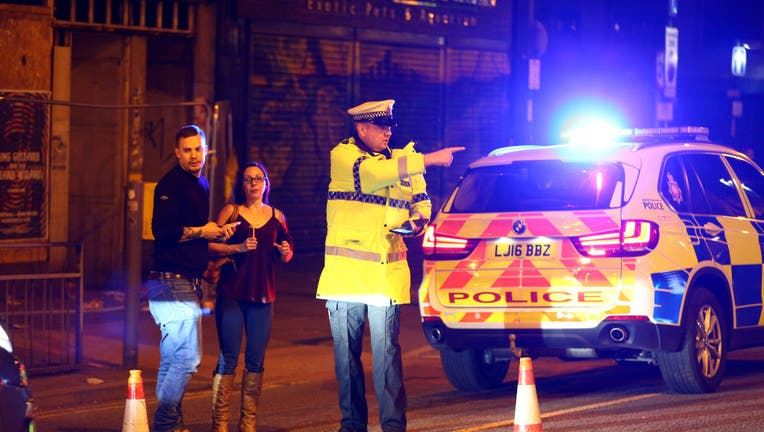MI5 didn't act quickly enough to stop Manchester Arena bombing, inquiry says

Police stand by a cordoned off street close to the Manchester Arena on May 22, 2017 in Manchester, England. There have been reports of explosions at Manchester Arena where Ariana Grande had performed this evening. Greater Manchester Police have confi
LONDON - Britain's domestic intelligence agency didn't act swiftly enough on key information and missed a significant opportunity to prevent the suicide bombing that killed 22 people at a 2017 Ariana Grande concert in northwest England, an inquiry found Thursday.
Retired judge John Saunders, who led the inquiry into the Manchester Arena attack, said that one MI5 officer admitted they considered intelligence about suicide bomber Salman Abedi to be a possible national security concern but didn't discuss it with colleagues quickly enough.
"I have found a significant missed opportunity to take action that might have prevented the attack," Saunders said.
In a rare televised statement, MI5 Director General Ken McCallum, who normally keeps a low public profile, said he was "profoundly sorry that MI5 did not prevent the attack."
"Gathering covert intelligence is difficult, but had we managed to seize the slim chance we had, those impacted might not have experienced such appalling loss and trauma," McCallum said.
Abedi, 22, set off a knapsack bomb in the arena’s foyer at the end of the May 22, 2017 concert, as thousands of young fans, including many children, were leaving the pop star’s show. More than 100 people were injured. Abedi died in the explosion.
His brother, Hashem Abedi, was convicted in 2020 of helping to plan and carry out the attack. He was sentenced to life in prison.
Saunders said MI5 had acted on the intelligence it received, it could have led to action — including potentially stopping Abedi at Manchester Airport on his return from Libya four days before the attack.
Caroline Curry, whose 19-year-old son Liam Curry was among those killed in the bombing, said Thursday that she couldn't forgive intelligence officials for their failings.
"From top to bottom, MI5 to the associates of the attacker, we will always believe you all played a part in the murder of our children," she told reporters.
Multiple MI5 witnesses gave evidence to the inquiry behind closed doors, and the intelligence wasn't publicly disclosed.
Abedi had been a "subject of interest" to MI5 officials in 2014, but his case was closed shortly after because he was deemed to be low-risk.
Saunders also said that authorities failed to refer Abedi to the government's counterterrorism program, known as Prevent.
"I have concluded that there was at least a period during Salman Abedi’s journey to violent extremism when he should have been referred," he said.
Thursday's report was the third and final one into the attack.
Saunders previously criticized the arena's security staff and local police for failing to identify Abedi as a threat. He also slammed delays and failings in the response of emergency services on the night of the bombing.

